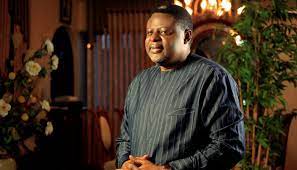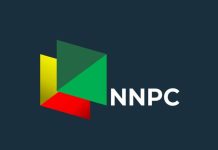 On Sunday, February 19, 2012, The Guardian carried a frightening story with the headline “S’East, S’South, Middle Belt form Alliance”. It was a report of a meeting attended by youth from the three zones and led by Alhaji Mujahid Abubakr Dokubo-Asari, leader of the Niger Delta People’s Volunteer Force (NDPVF).
On Sunday, February 19, 2012, The Guardian carried a frightening story with the headline “S’East, S’South, Middle Belt form Alliance”. It was a report of a meeting attended by youth from the three zones and led by Alhaji Mujahid Abubakr Dokubo-Asari, leader of the Niger Delta People’s Volunteer Force (NDPVF).
According to the report, “members of a coalition, comprising ethnic nationalities and groups from the North Central, South East and South South geo-political zones of the country, yesterday converged on Enugu to hold an all-night vigil and chart the way on how to retain political power even beyond 2015 … leader of Niger Delta People’s Volunteer Force (NDPVF), Asari Dokubo, led the gathering into sending a red signal to the core north, which has ruled the country for the greater part of its existence, saying the core north will no longer smell power in the capacity of a president in the nearest future”.
Dokubo-Asari’s strong rhetoric, we are told, is in response to “the core northern part of the country, which believes it is born to rule the country”. According to him, “the plan of the coalition (Coalition of National and Organisations of Nigeria) is to ensure that the leadership of the country will be retained within the three zones until the core north people who think Nigeria is for them to rule perpetually would beg to leave”. With the wave of the hand, Dokubo and his cohorts contrived to excise sections of the country. If this is not a declaration of war, I don’t know what is.
What could be driving the likes of Dokubo-Asari? Perhaps, he believes he can resolve the current crisis by replacing “Hausa-Fulani hegemony” with “Ijaw-Niger Delta hegemony”. It is the height of political naivety to think that because an Ijaw man is the president of the country, Dokubo-Asari and his group have the prerogative to determine which individuals or groups will or will not rule or should be part of Nigeria.Regrettably, there was no official response to these comments which the government would have termed treasonable if they came from some other group.
In light of the tragic events of the last one year, the mayhem and mindless violence that has enveloped the country, that report was a wakeup call. We can’t afford to dismiss Dokubo-Asari. His assertion is a pointer to the danger that stares us in the face and therefore the need for true patriots to do something, and urgently too, not necessarily to keep Nigeria one (that task will depend on all Nigerians), but to prevent the impending tragedy.
There is no denying the fact that Nigeria has some fundamental problems. Add to these problems, the inability of our rulers to rise to the challenge of nationhood. All these have deepened the contradictions in the country and created the need for an alternative resolution mechanism such as the Sovereign National Conference (SNC).
I believe in the need to restructure Nigeria through a Sovereign National Conference, as a minimal approach to addressing the “complaints” of the various interests groups, including ethnic nationalities, that make up Nigeria. But before we proceed, it is important that we debunk a few myths about the SNC. This has become necessary because the dominant voice for or against the SNC has been that of people who do not offer hope to the mass of our people.
Myth: The clamour for a Sovereign National Conference (SNC) is a call for the disintegration of Nigeria. Fact: The clamour for SNC is a response to an immediate threat that confronts us as a country. But we can’t say for certain that at the end of the day Nigeria will remain “one indivisible” country. That decision will be taken by “we the people”.
Myth: Proponents of the SNC are sour election losers who seek relevance by subterfuge. Fact: While it is true that there are those calling for SNC because of what they can “chop”, there are proponents of SNC who are genuinely interested in saving Nigeria from itself.
Myth: The National Assembly can take care of all the needs of the SNC.
Fact: It can’t. The National Assembly itself is subject to the SNC. Nigerians have the right to determine, through the SNC, whether an entity which is famous for its inefficiency and profligacy is worth preserving.
Myth: The SNC is about ethnic nationalities that make up Nigeria and will lead to the formation of new nations like Oodua Peoples Federation, Biafra, Arewa Republic, Lower Niger Republic, Middle Belt Federation, etc. Fact: It is not. As Edwin Madunagu has noted, “Nigeria is not, and has never been, the arithmetical sum of ethnic nationalities”.
Myth: The constitution can take care of the needs of those calling for the SNC, especially now that there is an on-going constitutional review. Fact: It can’t. A nation is more than its constitution. It is only when a nation has resolved or “settled” certain fundamental issues that a constitution is put in place to take care of the details of those resolved or “settled” issues.
Now that we have laid some of the myths about the SNC to rest, let us be reminded that neither threat and arrogance nor deception and denial are helpful in this debate. When I read the report of the Dokubo-Asari led meeting, I was reminded of the comments by that other exemplar of perfidy who told us not too long ago that he was not only ready to put on his military garb once more to go to war to defend “the unity of Nigeria”, but that certain fundamental issues about Nigeria were “settled” and therefore not subject to discussion.
Clearly, this is not the kind of rhetoric we need at this time. To avert the imminent chaos, we necessarily must go back to the drawing board on the Nigerian project. Space won’t permit me to detail the issues that have the potential of tearing the country apart, whether it is the division of the country into 19 northern states and 17 southern states, the clamour for “equitable” sharing of oil money, the link between poverty and the current state of terror, the quest for true federalism, and the desire to create pockets of theocracies in a section of the country.
The duty of progressive elements, therefore, is not to gloss over these issues, deny people the right to raise these issues or impose their own answers to the resolution of these issues. What then should be the attitude of progressives? Their attitude should be to maintain that the SNC is not a silver bullet. But it is, short of a revolution, in the words of Madunagu “the only viable historical option” under the present circumstance.
Genuine democrats can help negotiate the new Nigeria if they can stop charlatans and opportunists from “hijacking” the SNC debate. That is the least they can do to prevent the imminent implosion, unless of course they are willing to be the handmaiden of tribal warlords in the not too distant future!



